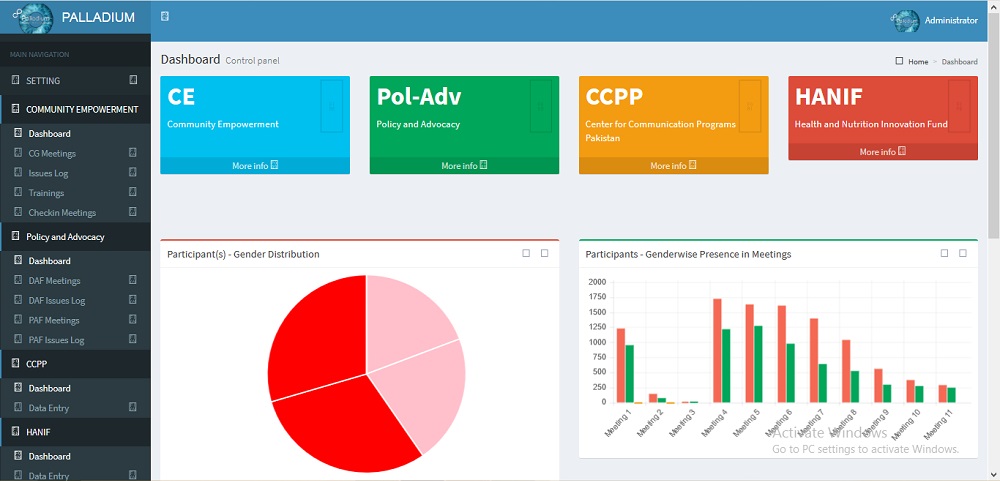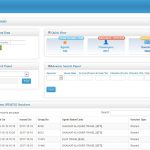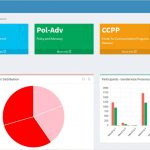Let’s talk about the benefits of customer relationship management software (CRM). CRM software is utilized to consolidate client interactions into a centralized location in order to enhance the customer experience and satisfaction. CRM is expected to grow by 14% between 2021 and 2027, making it one of the industries with the fastest growth rate in the world. CRM benefits include improved client retention, increased sales, and comprehensive analytics.
This post is for small business owners and marketers who want to know benefits of customer relationship management software (CRM) for their business services. Software for customer relationship management (CRM) has become an indispensable resource for businesses of all sizes. CRM software can bring a number of benefits to any business, including contact management and task automation. It may also function as a consolidated, organized hub that facilitates continuous communication with clients and within the firm. This is particularly crucial as more firms adopt remote work arrangements.
With a predicted 14.27% CAGR between 2020 and 2027, the CRM software industry is expected to be one of the fastest-growing industries. This is because consumers want better customer service, automated interactions, and more personalized customer experiences.
What are CRM applications?
CRM stands for “customer relationship management” and refers to a form of software that assists organizations in managing, tracking, and organizing their customer interactions. A CRM can help you keep track of customer information like user behavior, how long a customer has been with your company, purchase records, and notes on sales interactions. This information can be used to improve sales and marketing processes and customer service across your organization.
CRM is a collection of tools, technologies, and processes used to help sales and marketing professionals gain a better understanding of their clients, stated Bryan Philips, the marketing director of In Motion Marketing.
CRM software works by keeping track of the actions and behaviors of your current or potential customers through your company’s website, social media, or email marketing campaigns. It then guides the customer through the sales or buying funnel by sending a triggered email or letting a sales representative know about the customer’s interest.
CRM software is used to store, organize, and manage information about how your business interacts with its customers.
Benefits of customer relationship management software for your business.
A CRM solution may be utilized in a variety of ways and provides your business with multiple benefits. Here are significant advantages a CRM can bring.
Improved customer service
Modern CRM software has various functions, but it was designed to enhance business-customer interactions, and this remains its primary advantage. A CRM handles all of your relationships and compiles vital customer data, including demographics, purchase history, and past communications across all channels, and makes it conveniently accessible to any employee who requires it. This makes sure that your employees have all the information they need to give your customers a better experience, which usually makes your customers happier.
Enhanced sales
A CRM solution can facilitate the streamlining of your sales process, the creation of a sales pipeline, the automation of important processes, and the analysis of all of your sales data in a centralized location, thereby enhancing your sales and productivity. With a CRM, you can create a step-by-step sales process that your employees can depend on and that you can easily change as needed.
Enhanced customer loyalty
After acquiring and converting leads, it is essential to work to retain them as customers and foster client loyalty. Utilize your CRM and the information it gives about your clients to encourage repeat business. High customer churn can have detrimental repercussions on your organization, such as decreased revenue and cash flow disruption. The CRM will have tools like sentiment analysis, automated tickets, automated customer service, and user behavior tracking to help you find customer problems quickly and solve them.
Extensive analytics
It’s one thing to have an abundance of customer data, but it’s another to understand what it means and how to apply it. Typically, CRM software has analytical skills to contextualize data, separating it into actionable items and easily comprehensible metrics. You can measure the success of a marketing campaign by looking at things like click-through rates, bounce rates, and demographic data.
Greater efficiency and effectiveness
CRM software utilizes marketing automation technology, which expedites mundane chores like drip campaigns and frees up your workers’ time to focus on tasks that only humans can perform, such as content creation. It can also ensure that no duties are overlooked (e.g., all-important emails are always sent to the right people). In addition, a CRM can provide a dashboard that illustrates how your business processes are operating and where they could be improved.
Information database centralized
Additionally, CRM software excels at delivering a consolidated database containing all client information, making it conveniently available to any employee who requires it. This makes it easy for a sales representative to see, for instance, which products a particular customer is interested in. If the client has interacted with the company in the past, the CRM will contain records of such interactions, which can inform future marketing and sales efforts. This saves your personnel the time of looking through old files and documents, and it improves and enhances the customer’s experience.
Managed communications with prospective customers
Lead nurturing can be a lengthy and complex process, involving multiple processes and communication opportunities. A CRM automates the process by telling employees when they should contact a prospect and keeping track of every interaction, whether it’s an email or a phone call.
“An important advantage of [CRM] is the ability to observe the entire client journey,” stated Michael Miller, CEO of VPN Online. By reviewing each aspect of the design and each email you’ve written, you may easily determine your next step. It’s like having a bird’s-eye view, and it’s simple to determine what to do next. ”
Enhancements to customer segmentation
A list of hundreds of contacts might be daunting and difficult to manage. How do you determine, for instance, which clients wish to get your email about your new in-store product? A CRM will automatically separate your contact lists based on your criteria, making it simple to discover the individuals you wish to communicate with at any given time. You may organize contacts by location, gender, age, and more.
“Automation enables the marketer to have a deeper understanding of the customer and a more valuable relationship when they do interact,” Philips explained. “The most crucial aspect of automation to understand is that we do not want to send generic emails to our consumers. Instead, we want to send them emails that represent their preferences, interests, and values by segmenting them into groups using the CRM’s data.
Sales reports generated by computer
Using the CRM software’s dashboard and reporting tools, which allow staff to automate and manage their pipelines and processes, your team can effortlessly collect and organize data on prospective and existing clients. The CRM could also help your team members evaluate their own performance, keep track of their goals and quotas, and quickly see where each of their projects stands.
More precise sales forecasting
You must be able to evaluate past performance and effectively prepare for the future in any commercial activity. Using the automatic sales reporting in CRM software, you may spot key trends and predict your future sales cycle success, modifying your goals and metrics accordingly.
Simplified internal communications
A CRM can also help your employees communicate more effectively. A CRM makes it simple to observe how other team members communicate with potential customers, allowing your team to maintain a cohesive brand voice. It also enables team members to send one another comments or warnings, tag one another on projects, and send messages and emails, all within the same system.
We hope that you have liked our post for benefits of customer relationship management software (CRM). Stay intact for more.





